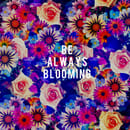Despite the recent normalization of “non-traditional” career paths and lifelong pursuits, it still seems that most people highly recommend a college education to any 18-22 year old within earshot. While this advice is rarely intentionally harmful, it does tend to mitigate the experiences and desires of those who wish to pursue non-academic endeavors.
However, there’s already plenty of books, articles, and research detailing the harmful effects of colloquially designating college as the “one true pathway” to happiness and success. I could talk more on that subject, but I feel that it would be more fruitful to explore a tangential yet related concern.
For those 18-22-year-olds who DO choose to pursue a college degree, they will, unfortunately, leave their educational institution with, at best, ample misunderstandings, and, at worst, flat out misinformation. The fact remains that so-called “liberal-arts” and “well-rounded” educations still suffer from an over-abundance of privileged cis-het white male voices, opinions, and perspectives.
Take, for example, the English Literature major. I myself am an English major, and there’s a lot of good that I could say about the subject field and the related classes at Kenyon. In fact, Kenyon prides itself on having one of the best English programs in the country. Even so, as I approach the end of my career as a Kenyon English major, I look back and see an education limited by a white male gaze. Most of the literature I read in my required classes consisted of materials by dead white men who often held racist, homophobic, and/or sexist personal belief systems. True, some of these authors addressed issues of inequality and institutionalized oppression, but they still spoke from the limited perspective of privileged white men.
As a result of the overabundance of white male voices within the English Literature curriculum, I found myself learning and embedding one-sided understandings of complicated issues such as feminism, intersectionality, racism, and social activism into my personal belief system. It took lots of outside research and conversations with aware peers to open my eyes to the nuance I was missing within my department of study.
I recognize, of course, that it is impossible for any single subject to be wholly comprehensive in its scope and coverage. I recognize too that it is impossible for even the best-designed programs to pay equal tribute to all voices and perspectives. Still, the amount of outside research and learning that I had to do in order to feel informed disturbs me. College is an institution meant to produce informed and intelligent critical thinkers who can better the world around them. This end goal will remain difficult, and oftentimes impossible if we continue to ignore the failings inherent to our current education system.
If you want to help make reform possible, there are many avenues to put that desire into action. While it’s always helpful to have more people go into the field of education and administration, it’s equally important to make your voice heard in immediately accessible areas. Make note of blatant lack of curricular diversity in your class evaluations. Schedule meetings with department chairs and administrators to suggest means of incorporating more holistic sources of knowledge into class curriculum. Whatever you may choose to do, always continue to think about, talk about, and organize around educational issues in hopes of bringing them to light.


